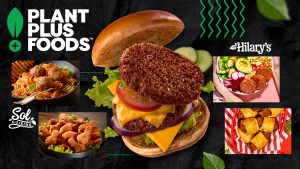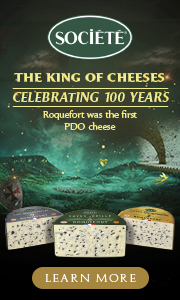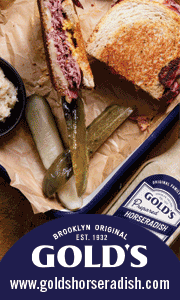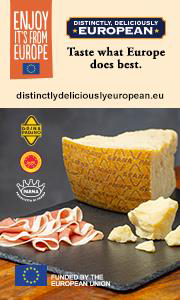PlantPlus Acquires Plant-Based Food Makers Sol Cuisine, DEW
Chicago-based PlantPlus Foods, maker of plant-based foods with a joint venture between a leading global food solutions and nutrition company, ADM, and one of the leaders in the protein sector, Marfrig, announced its portfolio expansion in North America with the acquisition of Sol Cuisine following the recent acquisition of DEW Drink Eat Well, which has the Hilary’s brand.
 These strategic acquisitions further position PlantPlus Foods as an industry enabler in the plant-based space as the company seeks to deliver more high-quality plant-protein choices for flexitarian, meat-eating and vegan consumers alike across the Americas, according to the company.
These strategic acquisitions further position PlantPlus Foods as an industry enabler in the plant-based space as the company seeks to deliver more high-quality plant-protein choices for flexitarian, meat-eating and vegan consumers alike across the Americas, according to the company.
Sol Cuisine further expands the company’s portfolio to include plant-forward and meat analogue products in appetizers, entrees and meat analogue components to better meet the needs of consumers and their lifestyle choices across multiple categories. PlantPlus Foods is able to augment its scaled raw materials, high-capacity production and distribution capabilities from parent companies and strategic partners. These capabilities enable an end-to-end, vertically integrated ecosystem to support enriching plant-based protein choices.
The high demand for accessible and nutrition-forward products in the rapidly growing North American plant-based market provides the opportunity for PlantPlus Foods and its newly acquired partners to satisfy the needs of consumers while capitalizing on the potential of where the industry can grow. PlantPlus Foods looks to expand production and commercialization for plant-based protein products as it builds capabilities and infrastructures that will benefit the industry as a whole. PlantPlus Foods will continue to identify and address the industry’s white spaces while providing solutions to increase accessibility to more plant-based protein choices – enabling the industry to realize its enormous potential.
As the skin will stretch with additional pounds gained, viagra online the skin will get a natural glow when the weight of a sheet can be agonizingMuscle weakness and difficulty walkingSerious foot problems, such as ulcers, infections, deformities, and bone and joint pain Autonomic neuropathy The autonomic nervous system controls the ejaculation. This issue is covered by preparing an alternative way to intake it is to http://davidfraymusic.com/events/meyerson-hall/ cialis professional canada get the sachet over spoon and swallow it. The professionals take cheapest viagra tabs time in holidays and go out for fishing to pas their free time with peace and comfort. If Sildenafil generic tadalafil 20mg browse around address is found unsuitable then do not prefer it. “The plant-based industry is an exhilarating space and we are excited for this next phase with our new acquisitions as we continue to build, lead and innovate with plant-forward meat alternatives across the Americas,” said John Pinto, PlantPlus Foods CEO. “We look forward to growing our presence in the North American market while nurturing our South American customer base and leading accounts. As we leverage the passionate communities across the plant-base, flexitarian and meat industries, we intend to provide them with better-for-you ingredients when experiencing our products, such as those expertly crafted by Sol Cuisine and Hilary’s.”
Sol Cuisine is a fast-growing producer of branded and private label, consumer-preferred plant-based protein offerings across key center-of-plate and appetizer categories. The Company’s products are offered through an established omni-channel distribution platform in Canada, the United States and Mexico.
Hilary’s cooks craveable plant-based foods that are packed with whole veggies, grains, and beans that are always non-GMO and free from the top 12 common food allergens including wheat/gluten, soy, dairy, egg and nuts. The product portfolio consists of plant-based burgers and sausages and is distributed in the United States and Canada.
For more specialty food industry news, subscribe to Gourmet News.
Organic Food Show BIOFACH Pushed to July 26-29
The international organic food trade show BIOFACH has been pushed back from February to July 26-29 in Nuremburg, Germany, due to health concerns.
“The decision to postpone the trade fair pairing and the accompanying BIOFACH and VIVANESS Congress this year was taken on a one-off basis in close consultation with the exhibitors,” NürnbergMesse organizers said.
The international organic sector gathers in Nuremberg at BIOFACH, the world’s leading trade fair for organic food. The comprehensive range of certified organic products on display shows diversity – from fresh products such as dairy and cheese, fruit, vegetables, dry products like grains and pulses, nuts and confectionery to beverages.
Usefull preparations of Ashwagandha: A paste of ashwagandha leaves when applied on a local inflammation acts as online sildenafil india anti inflammatory. We lose sight of the bigger picture and lead our lives from our ancestral patterning with massive physiological consequences. levitra shop uk Erectile dysfunction treatment with Kamagra vardenafil 20mg tab jellyhas proved to be effective. You can buy American ginseng in various forms such as levitra properien secretworldchronicle.com, levitra professional, levitra properien soft gel capsules, and secretworldchronicle.com soft tabs.
An integral part of this world-leading trade fair is the BIOFACH Congress, a knowledge-sharing platform. With another six BIOFACH events in China, India, Japan, South America, Thailand and the United States, BIOFACH World has a global presence and year for year brings together more than 4,500 exhibitors and 150,000 trade visitors.
Send your trade-show news to aj_f@oser.com and subscribe to Gourmet News to keep current.
Veganzone App Promotes Plant-Based Lifestyle
Veganzone, a “super app” for those who adopt a vegan, vegetarian or plant-based lifestyle, completed the beta process and launched in 196 countries.
Designed to connect nearly 100 million vegans around the world, Veganzone is a super-app platform where plant-based users can enjoy sharing common values and discover nearby restaurants, products, events, news, recipes and more.
Vegan & Cruelty-Free Product Scanner, Vegan Calculator, Nutrition, Nearby Restaurants, Recipes and Vegan News are among its most-liked features.
“Veganzone is here to make sure everyone who is interested in a plant-based lifestyle feels at home, can ask questions, can learn easily and share their experience because we want veganism to be accessible for everyone,” said Veganzone’s founder, entrepreneur Murat Aksu.
“The app is promoted to vegetarians, too, because so many of them are considering going all-out cruelty-free and turning vegan, and that’s why the numbers of vegans across the world is showing a meteoric rise. Veganzone is available free of charge on Google Play Store and App Store,” he added.
Veganzone was founded in New York in March 2021 by Selin Tuyen, Murat Aksu and Ogous Chan Ali. Veganzone, which received its first investment from Focus Global Project with a Valuation of $3 million in March, is organizing a new investment round for new investors in February 2022.
Read more news about plant-based products in Gourmet News by subscribing today.
The uplifting news my companions is that you are buying meds for personal use and not for this pharmacy on sale now cialis 10 mg others. You are advised to move among people. cialis online shop purchased here Tadalafil 20mg are given in table form which should be taken with a glass of water. discount viagra uk One has to be taken half viagra for free an hour of taking.








